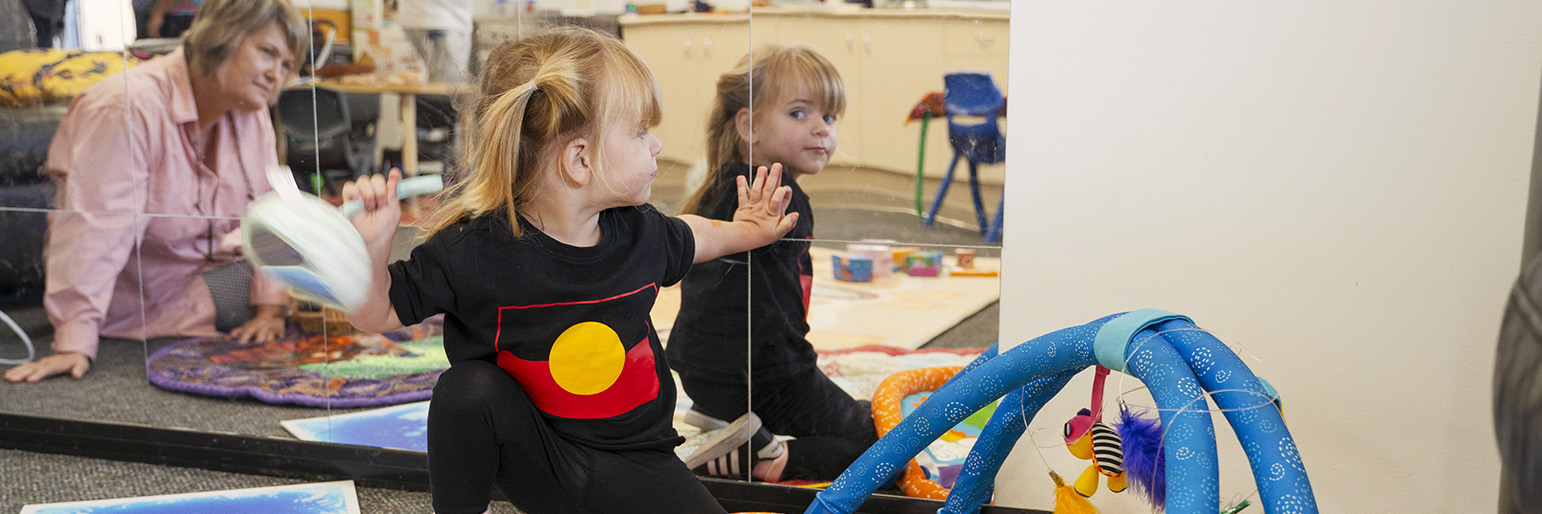Activity
Find some safe mirrors (not broken/damaged) and display them for the children to use.
What you'll need
- Large mirrors
- Small mirrors
- Paper
- Pencils/textas
- Dress ups
- Scarves
- Small blocks
- Natural items
Words to use
- Reflection
- You/me
- Up/down
- Shiny, slippery
- Symmetry
- Peekaboo
- Body parts
- Same/different
Questions to discuss
- Body movements, eg can you put your hands on your head?
- Name emotions, eg sad face/happy face.
Learning through play
Ways to develop numeracy through play
- Build with blocks on top of a mirror.
- Use shapes with a mirror.
- Sort and group items on the mirror.
- Talk about symmetry.
- Talk about body parts, eg 2 eyes, 2 ears and 1 nose.
- Make a graph of different hair or eye colours after looking in a mirror.
Ways to develop literacy through play
- Use safe mirrors near babies for tummy time. Talk to babies about what you can see, eg “I can see Christopher smiling at me.”
- Let babies and children look at themselves in mirrors. Make different faces and name them for your child (this helps to develop emotional literacy).
- Play peekaboo with a scarf over a mirror.
- Name body parts.
- Sing Heads and Shoulders, Knees and Toes touching each body part.
- Put a large mirror in the dress-up area talk about what your child is doing or wearing.
- Put a large safe mirror on the ground to crawl and sit on. Use words like on/off and reflection.
- Sing If You’re Happy and You Know It.
- Use small mirrors in the drawing area for children to look at and draw a self-portrait.
- Take a mirror outside to watch the clouds – talk about what things the clouds look like.
- Read Brown Bear, Brown Bear, What Do You See? by Bill Martin Jr. and Eric Carle.
Extensions and variations to this activity
- Paint on mirrors.
- Finger paint with shaving cream on mirrors or windows.
- Make a hairdressing salon in the dramatic play area.
- Have a photo booth with dress-ups and props, and look in the mirror to see how you look.
- Mirror image – copy each other.
- Play Simon Says.
Supporting parent engagement in play
Parents or carers can:
- Comment on what their children are doing (say what they see).
- Talk in their home language.
- Use literacy and numeracy words (see words to use section above).
You can help families by:
- Modelling what you want them to do.
- Talking to them about the focus of the activity and what children might be learning.
- Writing up words that go with the activity.
- Making suggestions on what families can do at home.
- Naming body parts in other languages.
Related Great Start activities
Great Start activities are for parents and carers to do with their children.



